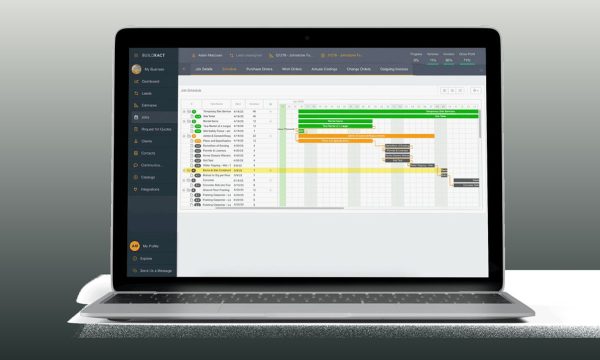Are you passionate about the world of finance and eager to build a successful career? A business and finance degree can be your stepping stone to a fulfilling and impactful career path. This versatile program equips you with the essential skills and knowledge to navigate the dynamic finance industry, from financial analysis and investment strategies to risk management and corporate decision-making.
Toc
Understanding Business and Finance Degrees
A business and finance degree is a multidisciplinary program that combines the study of financial principles, economic trends, and managerial decision-making. By mastering this diverse curriculum, you’ll develop a robust foundation for a successful career in various financial sectors.
What is a Business and Finance Degree?
At its core, a business and finance degree is designed to provide you with the necessary skills and expertise to thrive in the ever-evolving world of finance. This degree program covers a range of disciplines, including financial analysis, investment strategies, risk management, and market trends. As you navigate the complexities of finance, you’ll cultivate a keen analytical mindset, empowering you to interpret financial data and make informed decisions.
The curriculum is structured to offer a comprehensive understanding of key topics such as accounting, economics, financial management, and investment theory. This diverse educational background prepares graduates to tackle real-world challenges and seize opportunities in a rapidly changing financial landscape.
Why Choose a Business and Finance Degree?
A business and finance degree opens doors to a wide range of exciting and rewarding career opportunities in various industries. You’ll develop highly sought-after skills like analytical thinking, problem-solving, and financial modeling, making you a valuable asset in today’s competitive job market. Additionally, the earning potential for finance professionals is considerable, with the U.S. Bureau of Labor Statistics reporting a median annual salary of over $131,000 for financial managers in 2021.
Beyond the financial rewards, a business and finance degree also allows you to make a tangible impact on individuals, organizations, and even communities. Whether you’re guiding clients toward their financial goals, analyzing investment strategies, or managing corporate risk, you’ll play a crucial role in shaping the financial well-being of those around you.

Exploring Specializations and Career Paths
One of the most appealing aspects of a business and finance degree is the opportunity to specialize in areas that align with your interests and career goals. Let’s explore some of the common specializations and the corresponding career paths.
Specializations within Business and Finance
Within a business and finance degree, you can specialize in areas that align with your interests and career goals. Popular specializations include:
-
Corporate Finance: Focusing on financial planning, capital budgeting, and strategic decision-making within organizations. This specialization is ideal for those who aspire to influence the financial direction of a company.
-
Investment Banking: Developing expertise in mergers and acquisitions, equity and debt financing, and financial modeling. This path is perfect for individuals who thrive in high-pressure environments and enjoy complex financial transactions.
-
Financial Planning: Involving the provision of personalized financial advice and strategies to help individuals and families achieve their financial objectives. This specialization is rewarding for those who are passionate about guiding others toward financial security.
-
Financial Analysis: Centering on analyzing financial data, identifying trends, and making informed recommendations to support business decisions. This specialization is suited for analytical thinkers who enjoy working with numbers and data.
-
Risk Management: Focusing on assessing and mitigating various types of financial risks, such as market, credit, and operational risks. If you have a knack for problem-solving and strategic thinking, this might be the right fit for you.
1. https://viralblogspost.com/archive/3240/
2. https://viralblogspost.com/archive/3332/
3. https://viralblogspost.com/archive/3436/
Each of these specializations demands a unique skill set, allowing you to tailor your education to your career goals and personal interests.
Career Opportunities with a Business and Finance Degree
A business and finance degree opens doors to a wide range of exciting and rewarding career paths. Some of the most sought-after roles include:
-
Financial Analyst: Responsible for evaluating financial data, conducting investment research, and providing recommendations to clients or management.
-
Investment Banker: Advising clients on mergers and acquisitions, underwriting securities, and managing investment portfolios.
-
Financial Advisor: Providing personalized financial planning and investment advice to individuals and families.
-
Accountant: Preparing and analyzing financial statements, ensuring compliance with regulations, and offering tax planning services.
-
Risk Manager: Identifying, assessing, and mitigating various types of financial risks to protect an organization’s assets and profitability.
These roles are in high demand across a variety of industries, including banking and financial services, corporate finance, insurance, real estate, and government and non-profit organizations. The job market for finance graduates is promising, with employment in finance and accounting projected to grow by 7% between 2020 and 2030, reflecting the increasing demand for financial expertise across various sectors.

Choosing the Right Business and Finance Program
When selecting a business and finance program, it’s essential to consider the program requirements, accreditation, and reputation of the institution.
Program Requirements and Curriculum
Most business and finance programs require a solid background in mathematics, including courses in calculus, statistics, and accounting. The core curriculum typically covers essential topics such as financial management, investments, financial institutions, and international finance. Additionally, many programs emphasize experiential learning through internships, simulations, and case studies, allowing you to apply your theoretical knowledge in real-world scenarios.
This hands-on experience is invaluable for developing the practical skills necessary to excel in the finance industry. By engaging in these immersive learning opportunities, you’ll gain a deeper understanding of financial principles and develop the confidence to navigate the dynamic landscape of finance.

Accreditation and Reputation
Choosing an accredited program is crucial for ensuring a quality education that meets industry standards. Look for programs accredited by reputable organizations, such as the Association to Advance Collegiate Schools of Business (AACSB), which signifies a rigorous evaluation process and enhances your career prospects.
The reputation of the university and its business school can also significantly influence your career trajectory. Graduating from a top-ranked program can open doors to prestigious positions and valuable networking opportunities, providing you with a competitive edge in the job market.

1. https://viralblogspost.com/archive/3513/
2. https://viralblogspost.com/archive/3431/
3. https://viralblogspost.com/archive/3098/
Financing Your Education
Investing in a business and finance degree can be substantial, but numerous financial aid options are available to help alleviate the burden.
Scholarships and Financial Aid
Research and apply for scholarships, grants, loans, and work-study programs early to make the most of these resources. Many universities and business schools offer a variety of merit-based and need-based scholarships, which can substantially offset tuition costs and living expenses.
Taking the time to explore these financial aid opportunities can make a significant difference in your educational journey, allowing you to focus on your academic and professional goals without the added stress of overwhelming debt.
Cost of Attendance and Return on Investment
The cost of obtaining a business and finance degree varies widely based on the institution and location. However, the potential return on investment is considerable, with the U.S. Bureau of Labor Statistics indicating that financial managers earned a median annual salary of over $131,000 in 2021. This salary potential, along with the diverse career prospects and opportunities for advancement, makes a finance degree a sound long-term investment.
When evaluating the cost of attendance, consider not only the tuition and fees but also the potential earning capacity and career growth opportunities that come with a business and finance degree. This holistic perspective can help you make an informed decision that aligns with your financial goals and aspirations.
FAQ
Q: What are the best colleges for a business and finance degree?
A: Some of the top-ranked universities for business and finance degrees include the University of Pennsylvania, New York University, and the University of California, Berkeley. These institutions are recognized for their rigorous curricula and strong industry connections.
Q: What are the prerequisites for a business and finance degree?
A: Typical prerequisites include a solid background in mathematics, with courses in calculus, statistics, and accounting. Many programs also require a minimum GPA and standardized test scores, such as the SAT or ACT.
Q: What are the job prospects for finance graduates?
A: The job market for finance graduates is promising, with employment in finance and accounting projected to grow by 7% between 2020 and 2030. This growth reflects the increasing demand for financial expertise across various sectors.
Conclusion
A business and finance degree is more than just an academic credential; it’s a gateway to a world of opportunities. By mastering the complexities of financial analysis, investment strategies, and risk management, you equip yourself to thrive in a challenging and ever-evolving industry. Whether your aspirations lie in corporate finance, investment banking, or financial planning, this degree can propel you toward a fulfilling and impactful career.
As you embark on this journey, remember to research universities, explore program options, and connect with admissions offices. Your path to success in the dynamic world of finance awaits, and with the right education and mindset, you can unlock your potential.
















Leave a Reply